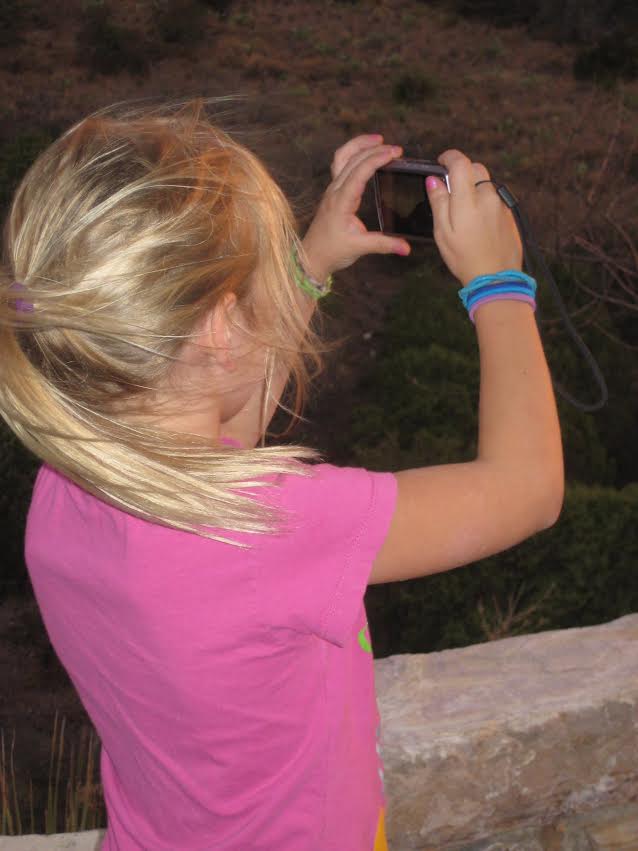Experiencing Deeply
by Terry Goddard
Radical empiricism is a theory of knowledge and a metaphysics (theory of being) promoted by William James. The concept broadens the standard understanding of ‘experience’ or ‘empiricism’. According to James, “the relations between things are at least as real as the things themselves.”
In philosophy and theology, empiricism is understood as the theory that all knowledge is derived from sense-experience: hearing, seeing, smelling, touching, and tasting. Radical empiricists broaden the concept of sense-experience by adding emotion, volition, evaluation, and aestheticism, as deeper ways to experience. The radical empirical thinker / theologian, Bernard Meland, defined experience as, “the felt, bodily, psycho-social, organic, interaction of human beings with an environment.” Meland’s colleague at the University of Chicago Divinity School, Bernard Loomer, (apparently you had to be named Bernard to teach there) expressed it this way:
Physical feelings are the fundamental avenues through which we meet and absorb the elemental forces of our existence. … The heights and depths of life, the unmanageable and efficacious undertows of existence, and the transformative energies of creative interchange are known first through our bodily feelings.
Let me give two examples of the way I interpret radical empiricism and the broadened understanding of sense-experience.
The Window View at Big Bend National Park in far west Texas is an iconic space. It has been photographed by most everyone who has visited the park. I am one of those folks and have numerous photos myself. However, my most memorable photograph is the one you see on the page – it is of my granddaughter as she takes her first picture of the Window. The feelings I had at the time of the photograph some ten years ago are still available to me when I look at this photograph. Of course, I cannot hear the noises that I heard that night. Nor can I feel the coolness of the air on my skin as I did that evening. But today I still feel the emotion and experience the beauty of the evening and my granddaughter.
The second example of radical empiricism is taken from one of Loren Eiseley’s stories, one of my favorites in fact. It is entitled “Judgement of the Birds,” and many of you that read my blogs have read it before; yet it fits as an example so well.
The story takes place in a quiet glade deep in the woods. Out fossil bone hunting, Eiseley stumbles on to this glade and sits down at its edge and falls asleep. Upon waking, he sees a large raven with a baby bird glitched in its beak. With a gulp, the nestling is gone. The parents arrive and raise a fuss that has no effect on the raven. Soon other birds begin to join the circle. Then quiet settles over the glade. A single bird begins to sing, and slowly one by one the others join in the song. As Eiseley writes, “They sang because life is sweet and sunlight beautiful. They sang under the brooding shadow of the raven. In simple truth they had forgotten the raven, for they were the singers of life, and not of death.”
Eiseley doesn’t simply see and hear the unfolding tragedy; he feels it as well. The death of the nestling is an emotional experience for him. (This reader feels it as well, and it is a bodily, physical feeling in the gut.) The singing of the birds in response to the raven’s violence is experienced by Eiseley as a celebration of life. I can only imagine from reading Eiseley’s retelling of the event that it was a “felt, bodily, psycho-social, organic, interaction” for him, and the birds gathered in the glade.
An open and relational worldview based on radical empirical methodology allows for a deeper, fuller experience of life. Some of our experiences are tragic and painful. The death of a loved one is one such experience. Other experiences like sharing an evening with your granddaughter at Big Bend is too wonderful for words. But I wouldn’t want to lessen the experience of either type of experience; to do so would lessen life itself. As I age I don’t want the easy path; I don’t want the depth of my experiences lessened. No, I want to experience life as Loomer says: “The heights and depths of life, the unmanageable and efficacious undertows of existence, and the transformative energies of creative interchange are known … through our bodily feelings.”
In philosophy and theology, empiricism is understood as the theory that all knowledge is derived from sense-experience: hearing, seeing, smelling, touching, and tasting. Radical empiricists broaden the concept of sense-experience by adding emotion, volition, evaluation, and aestheticism, as deeper ways to experience. The radical empirical thinker / theologian, Bernard Meland, defined experience as, “the felt, bodily, psycho-social, organic, interaction of human beings with an environment.” Meland’s colleague at the University of Chicago Divinity School, Bernard Loomer, (apparently you had to be named Bernard to teach there) expressed it this way:
Physical feelings are the fundamental avenues through which we meet and absorb the elemental forces of our existence. … The heights and depths of life, the unmanageable and efficacious undertows of existence, and the transformative energies of creative interchange are known first through our bodily feelings.
Let me give two examples of the way I interpret radical empiricism and the broadened understanding of sense-experience.
The Window View at Big Bend National Park in far west Texas is an iconic space. It has been photographed by most everyone who has visited the park. I am one of those folks and have numerous photos myself. However, my most memorable photograph is the one you see on the page – it is of my granddaughter as she takes her first picture of the Window. The feelings I had at the time of the photograph some ten years ago are still available to me when I look at this photograph. Of course, I cannot hear the noises that I heard that night. Nor can I feel the coolness of the air on my skin as I did that evening. But today I still feel the emotion and experience the beauty of the evening and my granddaughter.
The second example of radical empiricism is taken from one of Loren Eiseley’s stories, one of my favorites in fact. It is entitled “Judgement of the Birds,” and many of you that read my blogs have read it before; yet it fits as an example so well.
The story takes place in a quiet glade deep in the woods. Out fossil bone hunting, Eiseley stumbles on to this glade and sits down at its edge and falls asleep. Upon waking, he sees a large raven with a baby bird glitched in its beak. With a gulp, the nestling is gone. The parents arrive and raise a fuss that has no effect on the raven. Soon other birds begin to join the circle. Then quiet settles over the glade. A single bird begins to sing, and slowly one by one the others join in the song. As Eiseley writes, “They sang because life is sweet and sunlight beautiful. They sang under the brooding shadow of the raven. In simple truth they had forgotten the raven, for they were the singers of life, and not of death.”
Eiseley doesn’t simply see and hear the unfolding tragedy; he feels it as well. The death of the nestling is an emotional experience for him. (This reader feels it as well, and it is a bodily, physical feeling in the gut.) The singing of the birds in response to the raven’s violence is experienced by Eiseley as a celebration of life. I can only imagine from reading Eiseley’s retelling of the event that it was a “felt, bodily, psycho-social, organic, interaction” for him, and the birds gathered in the glade.
An open and relational worldview based on radical empirical methodology allows for a deeper, fuller experience of life. Some of our experiences are tragic and painful. The death of a loved one is one such experience. Other experiences like sharing an evening with your granddaughter at Big Bend is too wonderful for words. But I wouldn’t want to lessen the experience of either type of experience; to do so would lessen life itself. As I age I don’t want the easy path; I don’t want the depth of my experiences lessened. No, I want to experience life as Loomer says: “The heights and depths of life, the unmanageable and efficacious undertows of existence, and the transformative energies of creative interchange are known … through our bodily feelings.”

